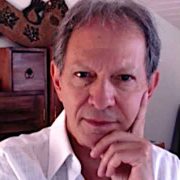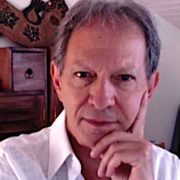What does happiness mean to you? Maybe it’s having your loved ones around you. Undoubtedly, it’ll be enjoying good health and achieving your goals. In fact, having a purpose. However, science claims that genuine well-being lies in possessing psychological richness. This means that true joy lies in having a broad spectrum of experiences.
To better understand this concept, think of the person who, when facing death, takes stock of their existence. That’s when they become aware of something. It’s the fact that their life has been monotonous and full of regrets, missed chances, and routes they never dared to take. That’s because they were indecisive or afraid. In effect, they missed out on psychological richness
We experience psychological richness when we accumulate multiple life experiences. Some will have been happy, and others will have had the taste of failure or deep disappointment, but they’ve all allowed us to learn, discover ourselves, go to new places, and visit fascinating people. That’s the secret and the ideal formula to contribute to the kind of internal balance that makes us feel good about ourselves.
Wealth is not in what you own, but in what you’ve lived.
Psychological richness and how to develop it
We all come into this world with the opportunity to enrich ourselves with new stories and scenarios. Indeed, we can all be millionaires with the kind of richness that’s made up of people and emotions. Day by day, this builds in us a substratum of learning, sensations, and memories that make up a good part of who we are. In fact, the more experiences we have, the more ‘complete’ we perceive ourselves to be.
Therefore, psychological richness can be defined as the opportunity to accumulate as many experiences in our lives as possible. If they’re varied and fascinating and allow us to relativize our perspectives and open our eyes, even better. This is how we weave our life stories. Furthermore, the more shades that are in the fabric of our lives, the more beautiful they’ll be.
It was Shigehiro Oishi from the University of Virginia and Erin C. Westgate from the University of Florida who recently coined the term, psychological richness. Their research work sought to explore how this concept contributed to human well-being. They concluded that investing in psychological richness could improve our quality of life.
Beyond happiness and a meaningful existence is psychological richness. This means the more experiences we have, the better.
The eternal search: what does it mean to have a good life?
Positive psychology has spent decades trying to give guidelines and strategies for the promotion of our psychological health. Indeed, this branch of psychology has, in effect, tried to teach us how to be happy. However, it seems that the concept of happiness is often diffuse, ethereal, and even controversial. Basically, because reaching this state of absolute happiness doesn’t always depend on what we do or don’t do.
Adversities, changes, uncertainties… In our complex social context, not everything is under our control. For this reason, until recently, it was recognized that more than seeking happiness, we should clarify our purposes and find meaning in our lives. That’s because this also contributes to our well-being.
Recent research has suggested that psychological richness is a newly found factor that contributes to our well-being. It means looking for new experiences that provide us with learning and that ‘enrich’ our hearts and minds.
How to achieve psychological richness
The message behind this theory appears to be both understandable and inspiring. However, how can you achieve psychological richness in your daily life? In reality, it’s simpler than you might think. You just need to consider the following:
- You must focus on each activity, behavior, and decision toward your life purpose. Knowing what you want and what makes you feel good is the starting point.
- The second strategy is ‘variety’. Try and diversify your experiences, discover new hobbies, meet different people, and escape from your routine whenever possible. Traveling, living in other cities, countries, taking advantage of opportunities, and filling your days with experiences and not fears will make you truly ‘rich’.
- Another decisive factor is getting involved in situations that allow you to see new perspectives, broaden your mind, tear down certain limiting beliefs, and discover new horizons.
Activities such as reading, making new friends, learning other languages, and traveling will enrich your existence.

How to be psychologically ‘rich’
The wealth that brings happiness and psychological well-being doesn’t always come from a bank account. Of course, you need means to support yourself but you achieve psychological richness by having gone through a wealth of experiences, the more the better. Also, when you know how to take advantage of every opportunity and don’t let any escape you.
Anyone can be psychologically ‘rich’. All you need to do is activate or practice these activities:
- Be curious. Reality is full of events that are worth learning about and enjoying.
- Be open to experience. Practice artistic sensitivity, flexible thinking, emotional connection and openness to others.
- Be thoughtful and observant. Feel life intensely through your emotions, but also process it analytically in order to establish valuable learning.
To conclude, beyond happiness and life purpose, you should practice obtaining psychological richness. It basically consists of practicing what you’re in this world for: living as many experiences as possible.
The post Psychological Richness: The Key to Happiness? appeared first on Exploring your mind.



















Comments